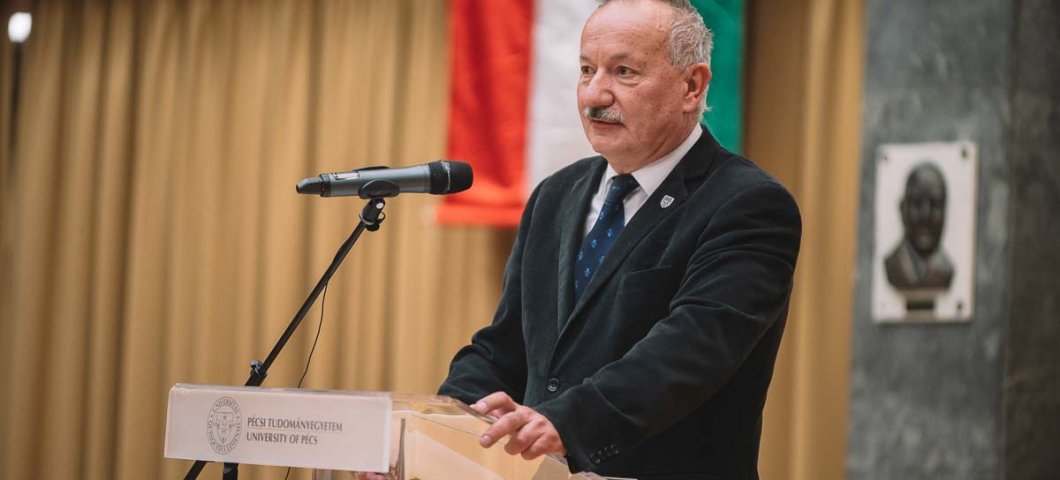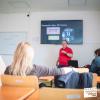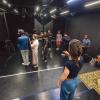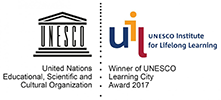A Happy and Successful New Year to Everyone!
2020
Jan
17
There are times, when it is enough to drift with the current, other times you can only be successful, if you can adapt. Change is always a little uncomfortable: although we can see the problems, we mostly agree that we do not cause any problems; it is always the others, who are at fault…
The reports of the Hungarian Central Statistical Office do not give reason for optimism in this county, or this region. According to its latest publication, Baranya is the weakest concerning the industrial production per capita, the average wages are low, however, the unemployment rate is also low. These last years resulted in the significant decrease of the population as well. Similar trends are also characteristic for Somogy and Tolna counties, although with different proportions. From this point of view, (albeit not a part of this region) Zala county has observed similar changes. On a national level, a couple of decades ago, a West-East oriented economic split was more the case, today a North-South oriented inequality is characteristic. From the perspective of logistics, it is of course understandable, that major Western investors settled in the counties closer to them. Budapest and the surrounding areas attract more and more people. The increasing population density there is proof of this compared to a decrease elsewhere.
The biggest employer of Pécs and Baranya county is the University of Pécs. With its ten faculties, 6700 employees and 20000 students it has significant potential, it is one of the largest higher education institutions of Hungary. At the same time, we cannot forget that fifteen years ago, the number of students was more than 30000, while the number of employees has not even reached 6000. The faculties also deliver different performances, if we compare them to those of similar institutions. The problems become especially obvious, where the reactions to the changes prompted by the 2011 higher education law were not appropriate or they have not even realized the challenge. Concerning the administration, its repeated reorganization has not fulfilled the expectations. The aim has always been a more precise adjustment to the changing higher education and administrative environment, rather than a more effective administration. The situation has been made worse by the bad publicity surrounding the 2010 cases, and the inspections by the State Audit Office and the Government Control Office.

I would like to summarize the goals of 2020 based on the results that we achieved so far. A beta version of the performance evaluation system is ready; improvements will be done during “operation”. We have made a step forward with the consolidation of subjects, which we operate more meticulously than ever before, however, the system is still not perfect. We wish to raise the standard of education through the following two steps. The quality-improvement concerning the permanent academic staff is the most important, which we aim to achieve by additional training, strengthening lecturer discipline (in which student feedback plays an important role in this). We would like to keep the talented young people here. We support the recruitment of talented teachers and researchers (e.g. resettlement allowance, housing benefit). I think, these goals are universal and continue to be pursued by every university management. We examine those opportunities that could under the right circumstances achieve better results in national and international rankings (e.g. it is very important to correctly report our affiliations, and publishing articles in databases monitored by the ranking experts: Scopus, Web of Science). This leads us to the scientific part.
Although we make efforts to correctly hold and report classes, we do not and cannot expect equal performance from everyone. Those who have fewer classes shall achieve more and perform better in the health care or management tasks. We continue to support the introduction of unique systems for each faculty that would encourage scientific performance. The costs of this should appear in the budget of each faculty for 2020. Every faculty must have specific regulations for the correct distribution of funds. The scientific, innovation and tender activities should count as basis for evaluation taking the characteristics of departments and faculty into consideration! We plan to reform the research professor system in order to be able to welcome colleagues with a solid background in research into appropriate positions at our University.
It is our firm resolution and expectation to decrease the number of dropouts significantly, to increase student satisfaction by offering more and higher quality services, to spread the eLearning system to all of our faculties, to maintain a closer relationship with secondary schools for a closer cooperation between secondary and higher education.
In the past couple of years, our tender system has not operated smoothly. We expect the new tender management to work with the existing system more effectively and efficiently, and concerning the participants, we expect cooperation! We are of course ready to correct the institutionalized problems that prevent the system from functioning properly. When defining our short- and long-term goals, we have to take the aspirations of the government concerning science and innovations into consideration.
The University offers health care services in a significant volume. We are aware, and the relevant statistics also suggest, that our health care system is underfinanced compared to other European countries. Therefore, it is no surprise, that every year, a significant amount of invoices remain unpaid by most institutions. In this sense, the university clinics are in the most difficult position, because the most severe cases with complications that produce significant expenses are primarily handled here. Although the consolidation at the end of the year mostly compensate the losses, at least partially, the system is demotivating. In my opinion, if the necessary planned funds would be available, the requirements of a responsible and accountable management of finances could be realized. In the case of university clinics and national institutions, the introduction of progressive financing should be considered.
Our environment in a narrower and broader sense is continuously changing. It is imperative to maintain a balanced, good relationship with the current leaders of the city, the county and the region, with the relevant people of the industry, business and service industry. Taking the situation of the region into account, the only way to convince people that it is worth studying at the University, to convince investors that it is worth to invest here, to convince decision-makers to support us is to join forces and work together. Our debt is substantial in every sense. Some of it is the result of our own fault fully or partially, some is not, however, it is clear, that the university, the city or this county has received undeservedly little support in the past decades.
We are glad to receive balanced criticism considering the right or left orientation of the University. Obviously, we are neither. The various political views of our colleagues are merely personal points of views, and cannot set us back in reaching our goals. At the same time, we would be glad, if the different opinions could be voiced in a diplomatic way, by discussing arguments pro and con, without personal remarks.
Finally, I would like to wish everyone good health, effective and efficient work, and success for 2020!
Dr. Attila Miseta
Rector
- Log in to post comments
University of Pécs | Chancellery | IT Directorate | Portal group - 2020.






















